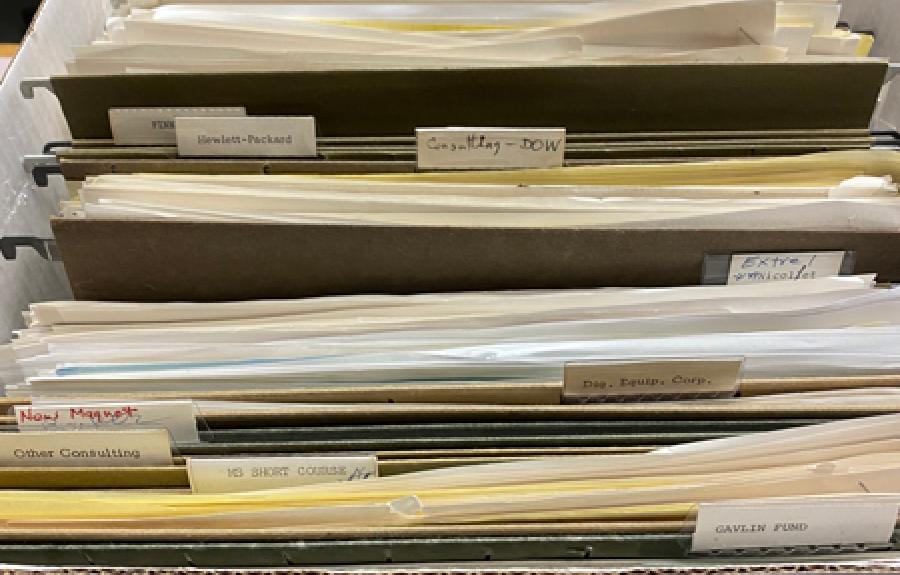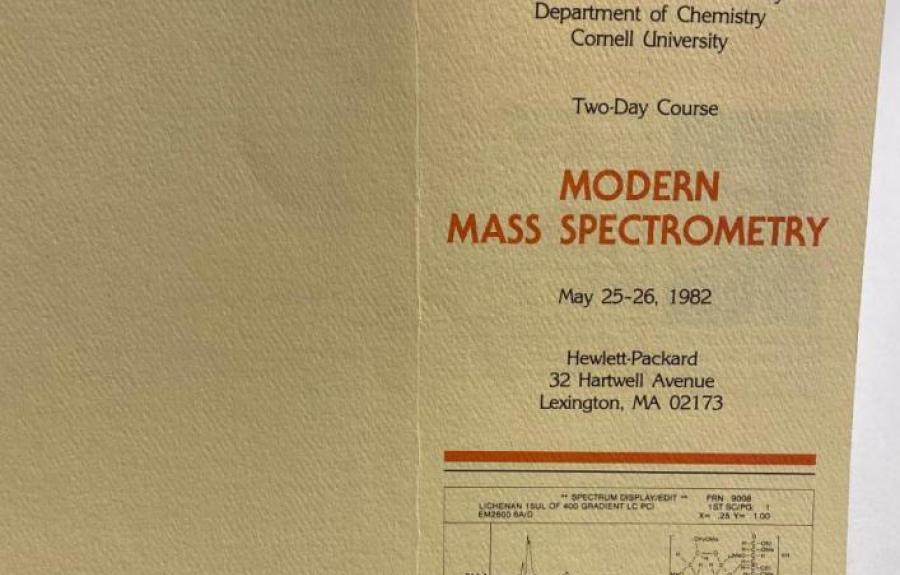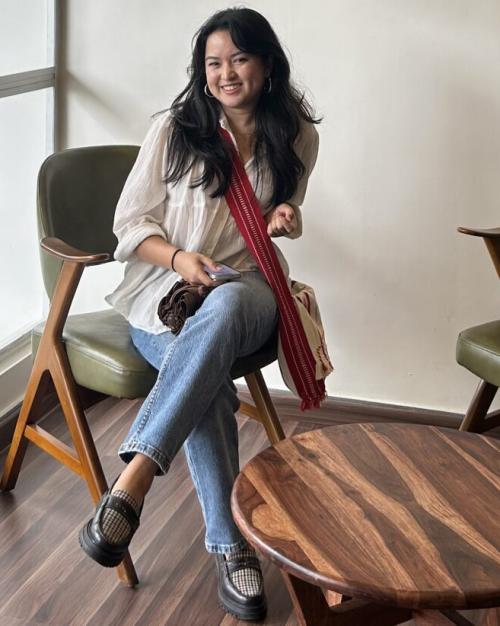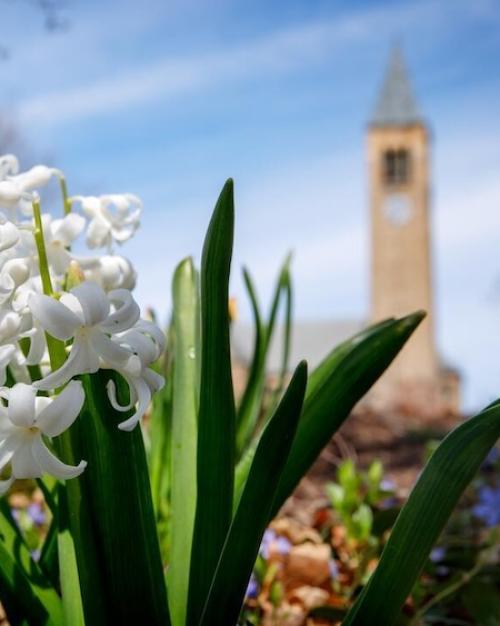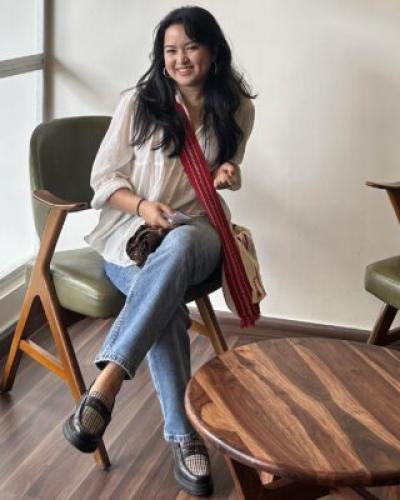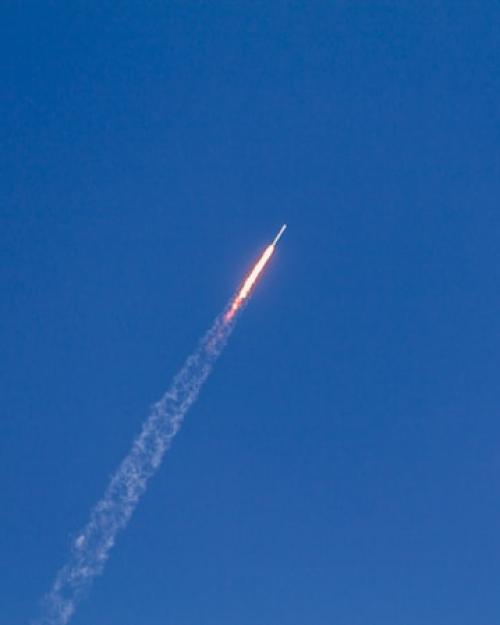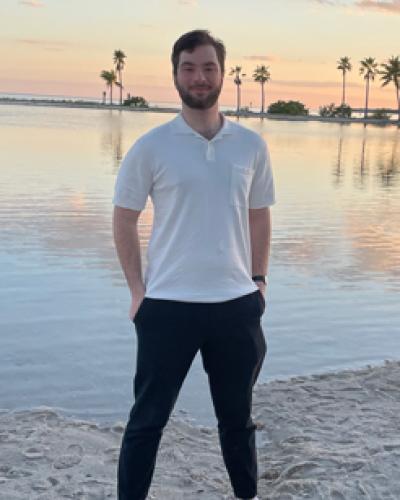Alex Siegenthaler is a senior double majoring in chemistry and history. He is writing his Honors thesis this term, and we wanted to hear about both the process and the topic he is researching.
Q. Who are your Honors thesis advisors?
A. My thesis advisor is Suman Seth, Marie Underhill Noll Professor of the History of Science (and STS Department Chair), with T. Robert Travers, professor of history and the instructor of Honors Research. My first reader is Jessica Ratcliff, assistant professor.
Q. What is the topic of your Honors thesis? Who or what entities are involved? Please share details with us.
A. The topic of my Honors thesis is the history of chemistry and, more specifically, the factors affecting scientific development. I am doing a case study on the spread of mass spectrometry across disciplines during the second half of the twentieth century. I use the work of Fred McLafferty, Peter J. W. Debye Professor Emeritus of Chemistry at Cornell (1923 – 2021), as an example of making the spectrometer, and thus science, accessible to other fields. That increase in accessibility led to a decrease in the necessary theoretical knowledge, with the thesis further exploring the development of the mass spectrometer as “black-box” instrumentation.
Fred McLafferty’s career parallels the development of spectrometers in fields like chemistry, medicine, pharmaceuticals, and petroleum engineering. He worked from the 1950s until the early 2000s and developed algorithms for selling ideas across disciplines. He touched many lives with his scientific collaboration.
This thesis is not a big man history. It is about how McLafferty cuts across boundaries to get funding from different sources and, in so doing, expands the use of a scientific instrument. Spectrometry is a framing reference, and marketing spectrometry is a narrow scope. Fred McLafferty trained and collaborated with different entities than one usually finds in the sciences. For example, he had a lab that kept getting post-doctoral students. He recruited Chinese students in the 1980s who were able to take this knowledge back to China.
Q. What courses and personal interests led you to this topic?
A. In high school, I was interested in both chemistry and history. I knew Cornell had strong programs in both, which is why I chose Cornell. I became interested in mass spectrometry during Honors Experimental Chemistry I. I did not know there was a subdiscipline about the history of science until I took Introduction to Historical Research with Professor Peter Dear, a recently retired historian of science.
One day I went back home and took a look at the science and math books on my shelves and realized that all the topics have a history. At that point, I began to think of the questions I could ask and research. I learned that Fred McLafferty’s papers were at Cornell, and I started investigating.
I developed my thesis proposal during the winter break of my junior year.
Q. Where have you found sources for your research?
A. I have found sources for my research in Cornell’s Division of Rare and Manuscript Collections, Cornell University Library. I accessed some of these resources. The collection holds seventeen of McLafferty’s books and twenty-three boxes of personal papers.
Also, I accessed the online copies of Fred McLafferty’s books for my project.
Q. Are there any features of your resources that you found unexpected: condition or information involved?
A. Yes. I researched the history of the pedagogy of chemistry at Cornell, and I thought I would find syllabi covering courses throughout the years. Instead, I found pictures of buildings, and I saw what one of my classrooms looked like one hundred years ago.
I also was surprised that Fred’s archives included a Happy Birthday email he received in 2003 with his complete response. It was interesting to note also the demarcation between handwritten letters and emails. My biggest takeaway, humorously, was that I assumed everything was an email, because that is the communication I’m used to, only to realize everything from at least before 1990 was almost certainly letters.
As a side note, I saw that in Sunset Park in Cayuga Heights, there is a park bench with Fred’s and his wife’s names on it. That was a pretty cool find.
Q. How have you navigated the changing pandemic situation to access the information you need? Did you find all the information that you needed?
A. The thesis is researched and written in different stages. In the beginning, I used online sources. I did not know if I could access the primary sources. But then the archives opened up, and I spent three hours at a time in the research room.
It was me against the clock. I sifted, looking for what I wanted, and scanned what I thought would be useful. I took pictures of sources I might need later. For example, I noted an EPA contract but didn’t scan it. I have since realized I need the full contract for my thesis research, so I will go back and scan it.
Q. Did the research process take longer than you expected?
A. Yes, the whole process has taken longer because one needs to read the information, sit with it, and then analyze it.
Q. How can studying history in depth through the Honors research thesis help you (and others) solve problems facing us now?
A. I have seen how theory and application go hand in hand. This thesis is a culmination of my courses; it is a way to deepen research and writing skills and learn how scientific research has been funded throughout history.
I plan to go into intellectual property law. This research project gives me background knowledge of how policy affects research and will help me solve problems going forward.
I have learned to consider: who is funding scientific research? What funding models are policymakers using. I have also discovered that grants are a big factor. Because there is so much time spent writing grants, economic waste results. Outside labs turn into careers of intellectual property. Intellectual property is an incentive for progress.
Q. What other information would you like to share with our readers?
A. I have discovered that policy often dictates what gets researched. This project allowed me to look at the nuanced picture: scientific narratives tend to assume a clear path forward for scientific progress, but the reality is that policy affects what scientific topics are tackled and, therefore, how science develops.
Alex is also the President of the Cornell Historical Society. We asked him a few questions about how things have changed with the organization as the pandemic continues.
Q. What challenges does CHS face as the pandemic continues?
A. We have to be flexible. Can we be in person or virtual is a question that comes up in our planning of speakers, events, and meetings.
One positive of zoom is that we were able to have Gail Hershatter from the University of California Santa Cruz for our speaker series. We could not have afforded to fly her across the continent for a talk. Inviting speakers that don’t live close is now a possibility.
A bummer was when we planned a history cheese tasting for the weekend before finals, and it had to be canceled due to a very high spike in COVID numbers. We have to tolerate disappointment and learn not to get our hopes up before the event.
Q. Do you ever get to meet in person?
A. Sometimes. But people have zoom fatigue: when we cannot meet in person, I make the meetings short and to the point.
Q. We interviewed Maximillian Fernandez and Bailey Reagan of CHS at the start of the pandemic. They told us about obstacles they had to overcome to complete Ezra’s Archives in 2020. What processes and procedures have changed since the pandemic started?
A. Not many. We still have two rounds of editorial reviews and used the same cut metrics. We used to do this in McGraw, but now it is a virtual discussion. One positive is that we can talk directly to paper finalists about edits on Zoom, which saves time over the previous procedure of going back and forth with emails.
Organizing large social events like a trip to Applefest have changed. We had a low turnout, which might be because of the fear surrounding the pandemic.
Q. What else would you like to share about recruiting and keeping CHS members engaged at this time?
A. Our membership grew this year because we were again able to have Club Fest in the early fall, where people could visit our table and learn directly about CHS. Our listserve has one hundred members, and our membership grew quite a bit from the previous year.
We have also learned as an organization how quickly things can change.

